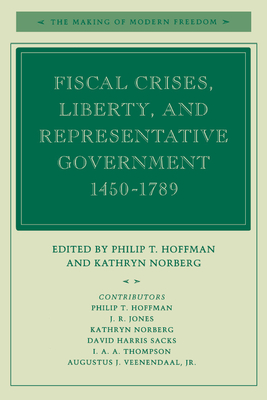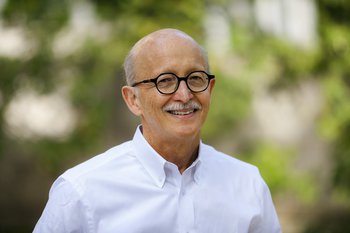

 Stanford University Press
Stanford University Press
Fiscal Crises, Liberty, and Representative Government 1450-1789


Key Metrics
- Philip T Hoffman
- Stanford University Press
- Paperback
- 9780804741927
- 9 X 5.9 X 0.9 inches
- 1.15 pounds
- History > World - General
- English
 Secure Transaction
Secure TransactionBook Description
This volume, one of the books in the Making of Modern Freedom series, is a collection of essays by eminent historians who explore the relationship between state finance and political development in fifteenth and sixteenth century Europe. They analyze how during this period European states were engaged in nearly continuous warfare and how those warfares produced fiscal crises. As a result, rulers were forced to enter into novel fiscal agreements with their subjects, often providing their subjects more political power, in exchange.
The volume begins with two essays on England. David Harris Sacks traces the politics of government finance from the fifteenth century to the eve of the Civil War, and J. R. Jones carries the story forward into the eighteenth century, when representative government was jeopardized by new and powerful financial interests. The third essay, by Augustus J. Veenendaal, Jr., explains why the Netherlands' exceptional ability to raise money by taxes and loans allowed them to wage war without the severe financial difficultes experiencd by other European powers. Two essays on Spain by I. A. A. Thompson follow the changing fortunes of the Cortes of Castile, relating its role to the desperate manipulation of Spanish fiscal policy as it came into conflict with the dearly held liberties of Castilian citizens.
The two final essays deal with the consequences of absolutism in France. Philip T. Hoffman details the fiscal effect of noble privileges and explores the political ramifications of the country's repeated financial crises, and Kathryn Norberg explains why the fiscal crisis of 1789 finally brought down the monarchy.
Author Bio
Philip Hoffman is interested in combining economic theory and historical evidence to explain long-term changes in politics, society, and the economy—in particular, economic growth and political development. His current research focuses on several areas. He's exploring why the West grew rich before other parts of the world and why it became a dominant military power.
Another area of interest is the evolution of financial institutions and their effect on economic growth. Specifically, he's trying to understand how mortgage markets developed in France and how they were affected by institutional change. Finally, Hoffman is interested in how states develop the capacity to levy taxes and provide public goods.
Hoffman was president of the Economic History Association in 2013–2014 and co-editor of the Journal of Economic History from 2006 to 2010, and he will become the incoming president of the Social Science History Association in 2019. He has been a visiting professor at the Ecole des Hautes Etudes en Sciences Sociales in France, a visiting researcher at the Paris School of Economics (2011), and a visiting professor at the Hong Kong University of Science and Technology (2013).
In addition to numerous articles, he has written six books and edited two.
He has won the Gyorgy Ranki Biennial Prize from the Economic History Association twice, for Priceless Markets: The Political Economy of Credit in Paris, 1660–1870 (2001) and for Growth in a Traditional Society: The French Countryside, 1450–1815 (1997), which was also awarded the Allan Sharlin Memorial Award from the Social Science History Association. In addition to receiving other prizes for his books and articles, he was a John Simon Guggenheim Fellow in 2001.
- Education
- A.B., Harvard College, 1969;
- M.A., University of California, 1971;
- Ph.D., Yale University, 1979.
- Lecturer in History, Caltech, 1980-81; Instructor, 1981-82; Assistant Professor, 1982-84;
- Associate Professor of History and Social Science, 1984-95;
- Professor, 1995-2003;
- Richard and Barbara Rosenberg Professor of History and Social Science, 2003-08;
- Axline Professor, 2008-. Executive Officer for the Humanities, 1995-2000.
- Research Interests
- Economic History of Europe and the World; Economic Development; Institutional Change
Source: California Institute of Technology Division of The Humanities and Social Sciences
Videos
No Videos
Community reviews
Write a ReviewNo Community reviews